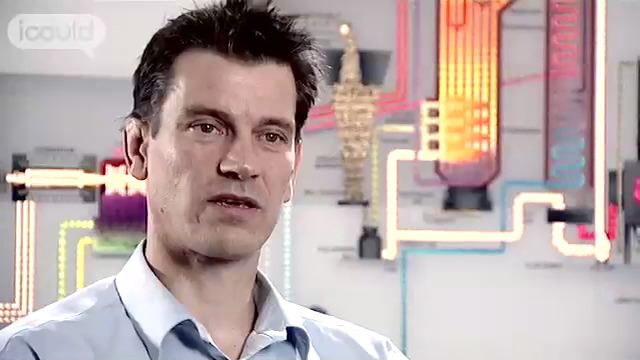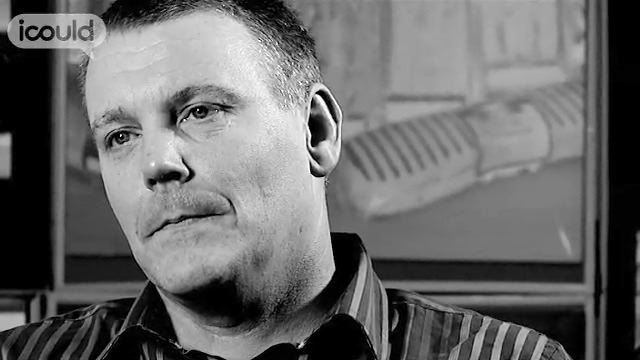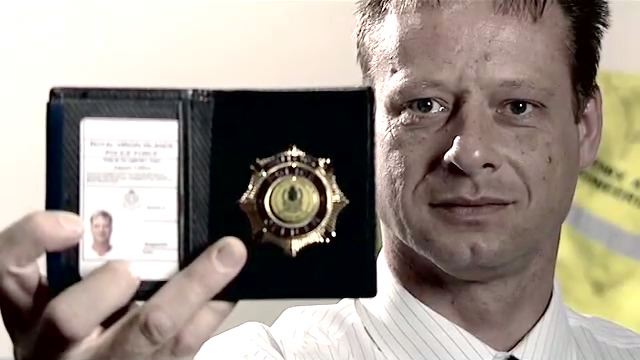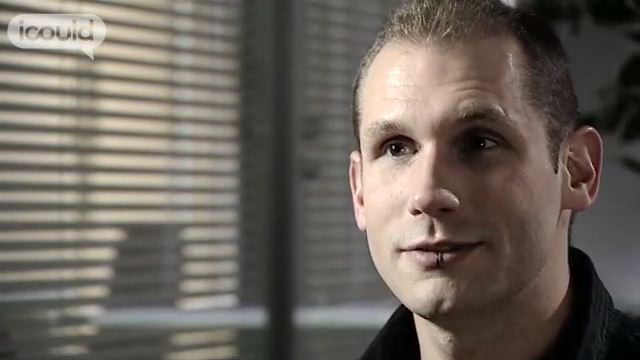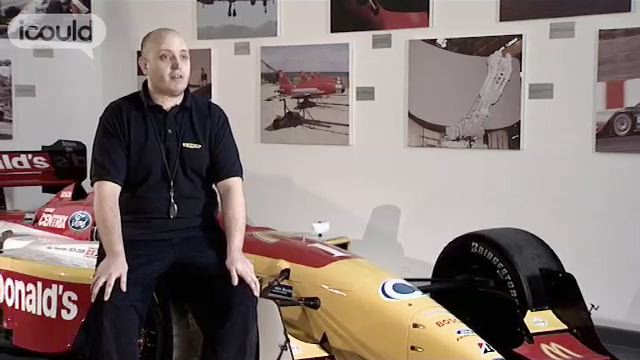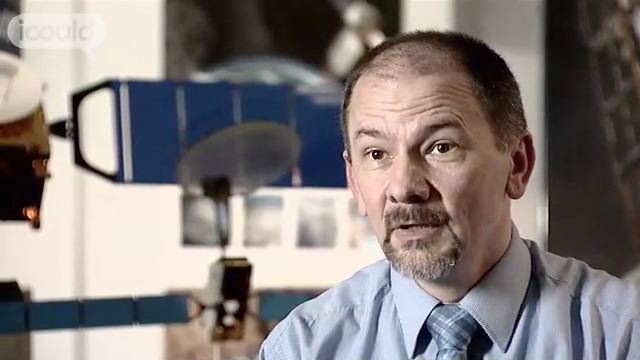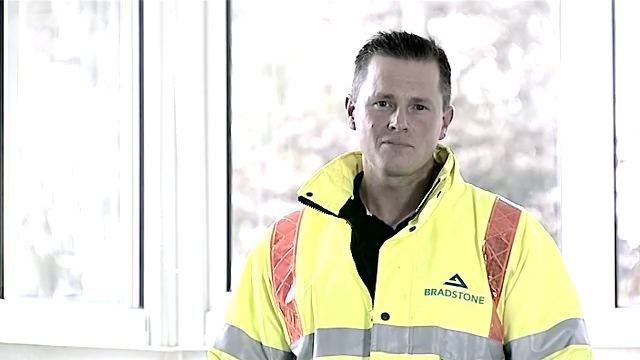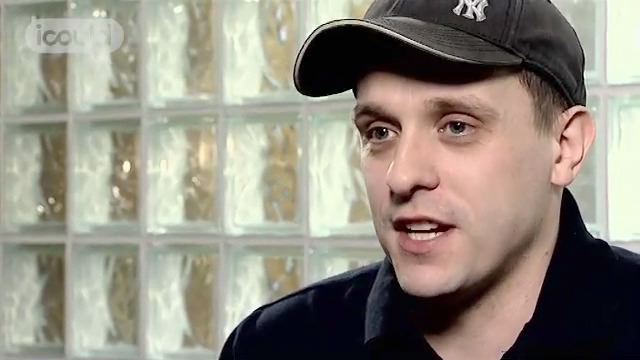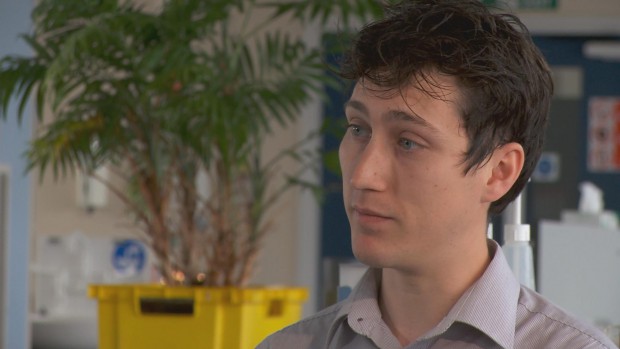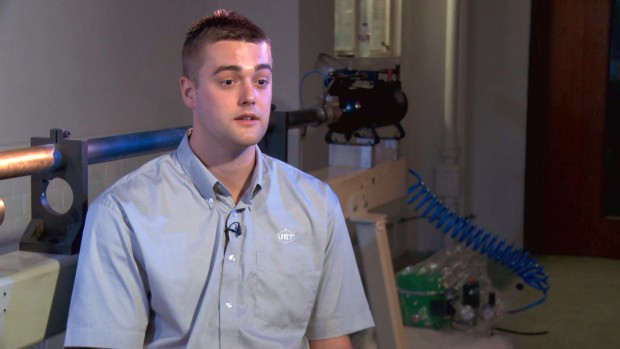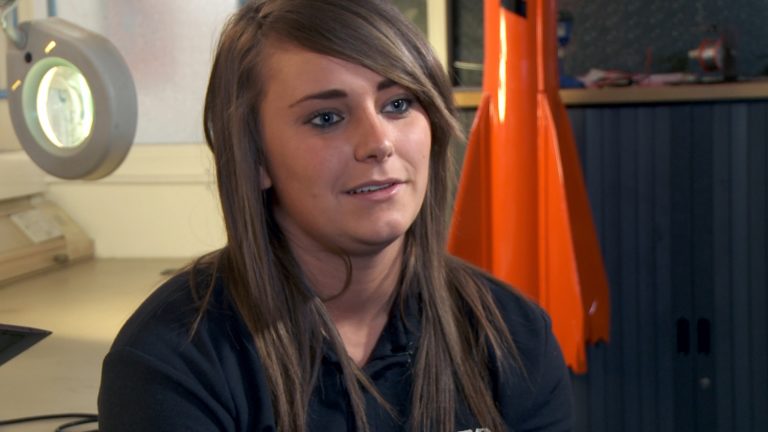Engineering Apprentice
MBDA Missile Defence Systems
My name is Matthew S and I’m an engineering technician. I work for MBDA missile systems. While leaving school I was always interested in engineering, so I looked around thinking where shall I go, shall I go to Uni or shall I go to a company. And I looked around and I’d seen that MBDA was quite local to me and it had a good reputation. At university obviously you can get a lot of knowledge and intelligence from the technical side but for me I wanted to get involved with the hands on experience. So getting involved with a soldering iron and putting components together and working on documents, rather than just sitting in a class room and just looking at the technical side.
In secondary school the subjects that I enjoyed and that I was most interested in was maths and science. I looked at what subjects what would be involved in several careers and thought that maths and science would be an engineering role, so I looked and that and what that would involve and it really interested me.
My dad’s a operations manager at South Port train station and my mum’s a college lecturer. As my dad always tells me I was always taking things apart and putting them back together. So when I said that I fancied doing engineering, he said do what you want that’s a good profession. There’s a shortage of them so it will be a good future career prospect.
On my first day when I was coming in I didn’t really know what to expect, it’s the first time id been involved in a proper company, other than work experience at school and just the technology they of what they were showing and the complexity of the missile etc, it was a bit put me back, then I was like, I’m glad to be involved in all this.
In your first year you’re getting involved in all, a lot of the hands on work. So you’re on the shop floor basically putting the units together and working with the supervisor. He’ll talk you through what to do, he’ll go through the documentation and you’ll do the job so you actually get hands on, soldering and playing with the circuit boards. Then you progress through and become more of the engineering role where you’ll look at the drawings, the documentation, planning’s etc to show the people on the shop floor how to do it. And it’s progressed from there; you’ll do a lot of different placements to get the full knowledge of the business and all the different aspects of engineering. You’ve not just got test engineering or production engineering there’s also manufacturing engineering also. As you progress through your four years, you’ll get an idea of what you want to do as you come out of your time and you’ll discuss this with your apprentice manager and express your feelings and say I really would like to go in this placement. The want the business to see if they can meet your needs. For me, I was really interested in manufacturing engineering, thankfully that’s the placement I’m currently in and that’s where I’ll be carrying out my time. Sometimes it’s hard trying to balance both but you get enough time to do it. When you go to college etc and through your week nights you’ll get to do it, but it’s not overloading but it is quite hard but it’s ok.
For myself I will get the qualifications I need to give me a good foundations for the future of intelligence and then I will continue to work in the company to get the hands on experience and that will give me the opportunity to go wherever I want in the company. The first year, when I was doing the hands on experience I enjoyed it but it wasn’t exactly what I wanted to be doing. Then when I moved into the second year, and this was the manufacturing engineering side, so this was getting the information from the design team and taking that and putting it in to planning’s to show the operators how to do it. Then looking at the dimensions etc and trying to put that into one document. That was something I really enjoyed and when I started taking this on I thought yeah this is really what I want to be doing.
I coach a kid’s football team which this apprenticeship has actually given me the confidence to do that. We had quite a successful season last season, we finished second.
If it’s something you enjoy, maths or science etc.. It really is a good career to get involved in. The hands on experience as well as the technical side it’s quite interesting, there’s never a minute where you’re going to be bored. This is exciting every day, there’s something different every day, there’s always a challenge. This is something that really interests me, so I’m not stuck in a job that I don’t want to be in.
Matthew applied to be an engineering apprentice straight from school. He really enjoys the combination of studying and working. His favorite subjects at school were Maths and Science, which led him to think about engineering.
More information about Engineering technicians
The UK average salary is £29,813
There are 37.5 hours in the average working week
The UK workforce is 47% female and 53% male
Future employment
- Plans and prepares work and test schedules based on specifications and drawings
- Sets up equipment, undertakes tests, takes readings, performs calculations and records and interprets data
- Prepares estimates of materials, equipment and labour required for engineering projects
- Diagnoses and detects faults and implements procedures to maintain efficient operation of systems and equipment
- Inspects completed aircraft maintenance work to certify that it meets standards and the aircraft is ready for operation;
- Visits and advises clients on the use and servicing of mechanical and chemical engineering products and services
- Provides health and safety inductions and adheres to health and safety procedures
- Completes documentation such as project records, safety reports
- Carries out stock takes
